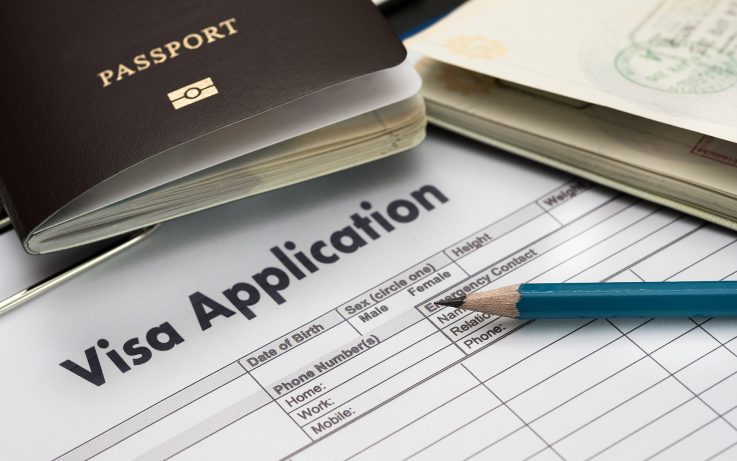Complete Guide to UK Student Visas: Study in the UK

UK education is one of the most prestigious in the world. As many as three British universities are among the world’s top ten: the University of Cambridge, the University of Oxford and the Imperial College London. The level of other educational institutions is also higher than average. Their graduates get both professional skills and degrees which are highly valued all over the world.
There is additional value to UK education: learning about European traditions and the British mindset, networking, and becoming self-reliant which is key when you are far away from home. These are the reasons why lots of parents choose overseas education for their children.
This article looks at studying in the UK from the point of view of the Home Office and explains how to get a UK Student visa.
UK Child Student Visa
It is better to plan studies abroad much in advance when your child is just a year-one student. Then you have time to arrange things so that they can finish school in the UK. There is no easy answer to sending a primary school child to study abroad. But it is common for secondary school students to be sent to a school in the country where they are going to get their degree.
Here we are talking about independent schools. First of all, it is a requirement for obtaining a UK Child Student visa. State schools function thanks to the taxpayers’ money and the government chooses not to fund the education of foreign students. Second, there is a question of the quality of education; it is considered to be higher in independent schools. If parents can afford for their child to study abroad, it is only logical to go all the way and find a school that is worth it.
Requirements for Obtaining a UK Child Student Visa
Your child is eligible for a UK Child Student visa if they are 4 to 17 years of age. How long they can stay depends on their age. In general, the visa is granted for the length of studies, but if they are under 16, the visa will be granted for up to six years plus four months, and if they are 16 or over, the visa will be granted for up three years plus extra four months.
When you apply for a UK Child Student visa, you will need to provide the following documents:
- An identification document – the child’s passport;
- A certified consent from a parent or a guardian for the child to go abroad and study in the UK;
- A Confirmation of Acceptance for Studies from the school – the school must be chosen in advance and it must accept the child for studies (as a rule, the child has to pass a test and you have to pay the tuition fee for the first term). If your child is refused a UK Child Student visa for any reason, the fee will be fully reimbursed;
- A confirmation that the parents or guardians have enough funds to pay for the course and the child’s maintenance. The amount you will need to show depends not only on the tuition fee but also on where your child will stay: at a boarding school, with a relative or with one of the parents who is accompanying the child to the UK.
There is also a UK Child Student visa application fee. If you apply from outside the UK, it will cost you £348. If you are already in the UK, you will have to pay £475 (as of January 2022).
UK Parent of a Child Student Visa
Most foreign students stay at boarding schools while studying in the UK. However, some children cannot be away from their parents because the new environment causes them stress. Taking this into account, the UK authorities have come up with a way for parents to accompany their children abroad. Note that this only applies to children under 12. A child can be accompanied by one of the parents. The other one can apply for another visa, provided they are eligible, or they have to stay behind.
A UK Parent of a Child Student visa is valid until the child’s visa expires or they turn 12, whichever happens first. Before leaving the UK, you must make arrangements for your child’s accommodation: pay for their boarding at their school or arrange for them to stay with close relatives if any, and notify the authorities accordingly. Then you can apply for a UK Standard Visitor visa to visit your child.
What You Can Do on a UK Parent of a Child Student Visa
In a nutshell, not much – fulfil your parental duties and take care of your child. What you should rather be aware of is what you cannot do in the UK on this type of visa:
- study;
- work;
- run a business;
- apply for public funds;
- apply for joining a family member (to bring them with you);
- switch to another type of visa.
The rules are also clear that a UK Parent of a Child Student visa does not lead to settlement in the UK and you cannot “make the UK your main home”.
How Much Does It Cost to Apply for a UK Parent of a Child Student Visa?
Your expenses of living in the UK with your child will depend on your family’s lifestyle. But you must show you have a certain sum of money in your bank account to prove that you can support yourself and your child without the need to work (which you are not allowed to do anyway) or perform other prohibited activities. This minimum amount is £1,560 per month. You shall multiply this by the number of months your child’s course will last. As a rule, it is nine months, a standard academic year, so you need to have a total of at least £14,040 on your account. If you have more than one child studying in the UK on a UK Child Student visa, and they are under 12, you must add £625 per child a month.
It is better not to use a brand new bank account so that you could demonstrate your transactions for the previous six months. The UK authorities are very specific about sources of funds: this means that you may be required to provide additional documents proving their legal origin.
UK Student Visa
This visa is granted to those who want to get a bachelor’s degree, a master’s degree, or a PhD. You may be eligible if you are 16 or over. The university you have chosen must be a licensed student sponsor. Similar to secondary education, you will need to pay a tuition fee.
You can also apply for a grant from your university or a foundation if there is one. The most popular British programme of this kind is the Chevening Scholarship Programme. It is designed for talented students.
How long you can stay in the UK on your UK Student visa depends on your course and your degree level. But in total, you can stay for up to five years.
A list of the documents you need to submit is fairly similar to the one for a UK Child Student visa: a Confirmation of Acceptance for Studies, a confirmation that you have enough money in your bank account, your medical insurance, your passport, and a notarised parental consent if you are under 18. You will also have to prove that you speak English to level B1 or above.
When you come to the UK on a UK Student visa, you can bring your family with you but only a spouse and children, if any, and not your parents. It means that this visa is not only for young people who have just finished school but also for adults with or without a family. You can add your family to your application as your dependants. They will not be allowed to work in the UK, so when you apply for your visa, they must prove that they have enough savings to stay in the country during the academic course of the main applicant.
How Much Does It Cost to Apply for a UK Student Visa?
The total amount consists of two parts: the tuition fee and the money you will need to support yourself in the UK. The tuition fee is set by the university and specified in the respective agreement. But the other part is the minimum maintenance requirement stipulated by the Home Office; it depends on where you stay, in or outside London.
| You stay | Main applicant |
Each dependant |
|
In London |
£1,334 per month |
£845 per month |
|
Outside London |
£1,023 per month |
£680 per month |
Multiply this amount by the number of months you are going to stay in the UK (up to nine months). For example, there is a family of four, and one of the parents is going to study in London. The calculation will look as follows: (£1,334 + £845*3)*9 = £34,821. They must demonstrate that they have this amount in their bank accounts to prove they can support themselves during the length of the course.
Besides, to apply for a UK Student visa, you must pay the application fee of £348 for the main applicant and £475 for each dependant. It is also necessary to pay for medical insurance for each family member.
What is Allowed and Not Allowed on a UK Student Visa?
Since the UK Student visa is designed for a very specific purpose, there are just a few things you are allowed to do. You can:
- study;
- join a student union;
- work for up to 20 hours per week in term-time and full-time out of term-time.
You cannot:
- work in certain jobs (for example as a professional sportsperson);
- be self-employed;
- claim public benefits.
In general, the British government’s point of view is that if you come to the UK to study, and to do a great job of it, you will not have time for anything else.
UK Short-term Study Visa
This visa is for those who want to come to the UK to learn English. Before we talk about this visa, it’s worth pointing out that if you are interested in a very short course, like a summer language camp, you can apply for a UK Standard Visitor visa. However, if your course lasts for 6 to 11 months, you must apply for a UK Short-term Study Visa.
The visa is granted for the length of your course plus an extra 30 days (as long as your stay does not exceed 335 days). Similarly to the previous visa route, you must prove that you have paid for the course and provide a Confirmation of Acceptance for Studies.
A UK Short-term Study Visa costs £186. Besides, you must pay for medical insurance, which is £470 on average. You will also have to prove you have enough funds in your bank account to support yourself while in the UK.
UK Short-term Study Visa rules:
- the unique purpose of the visa is to learn the English language with an accredited institution;
- you cannot change the course;
- you cannot enrol on a state-funded course – you have to pay for it;
- you cannot obtain another visa of the same type or extend your visa;
- you cannot work (including unpaid work placement), be self-employed or run a business;
- you cannot bring dependants with you on this visa.
You may be eligible for a UK Short-term Study Visa if you are over 16. But if you are a minor, you will need to provide notarised consent from your parents and information about where you will stay during the course and who will stay with you.
UK Standard Visitor Visa for Studying
There is no UK student visa for very short courses or dealing with other issues related to education which do not require a lot of time. You can apply for a UK Standard Visitor visa for up to six months instead.
Here is the list of educational purposes covered by this visa:
- study at an accredited institution (this includes English language courses);
- take an exam;
- do a piece of research for your doctorate studies;
- receive advanced training in medicine, nursing or veterinary medicine;
- take an OSCE test or PLAB test.
To obtain a UK Standard Visitor visa to study here you must provide an offer from your educational institution which clearly says that the length of your course is less than six months. The only exception is a course that lasts more than six months but a great part of it is taught remotely. In this case, you will be granted a UK Standard Visitor visa to study for the following purposes:
- attending induction weeks;
- doing face-to-face intensive learning;
- having progress checks;
- taking exams.
The visa fee is £95.
Can I Settle in the UK with a UK Student Visa?
Officially, you cannot. None of the routes mentioned leads to settlement, aka Indefinite Leave to Remain (ILR), or UK citizenship. But if we take a closer look, we might discover that things are not as simple.
One of the available routes to ILR in the UK is legally living in the country for at least 10 years. UK long-term student visas are counted towards that period. Once your UK Student visa expires, you can switch to another visa – a UK work visa, a UK family visa, a UK business visa – and stay in the country, and the time you spent in Great Britain on your UK Student visa will be included in the mandatory 10 years.
Besides, it is in the best interests of the UK government to have educated people stay in the UK because they are qualified and can serve the British economy and society. That is why in late 2021, the UK government introduced a UK Graduate visa. You can switch to this visa route from a UK Student visa, provided you have a bachelor’s degree, a master’s degree or a PhD. There is an important restriction: you can only apply for a UK Graduate visa from within the UK. The application fee is £700. Besides, you will have to pay a healthcare surcharge which is £624. It is a one-off payment for the entire period of validity of the visa.
A UK Graduate visa is valid for two years. However, if you have a doctoral qualification, it will last for three years. The great advantage of this visa is that it gives a lot of freedom. You can be employed or self-employed, do voluntary work or do anything else. Then you can switch to another visa, for example, a UK Skilled Worker visa, if you have found an employer.
A UK Student visa is a great way for young people to get off to a flying start in their careers and a great reason for adult professionals, who want to get a second degree, to change their lives and open new horizons. Regardless of whether you stay in the UK or go back home after your course, a degree obtained at a UK university will be a huge advantage for you and a great help for your career.







